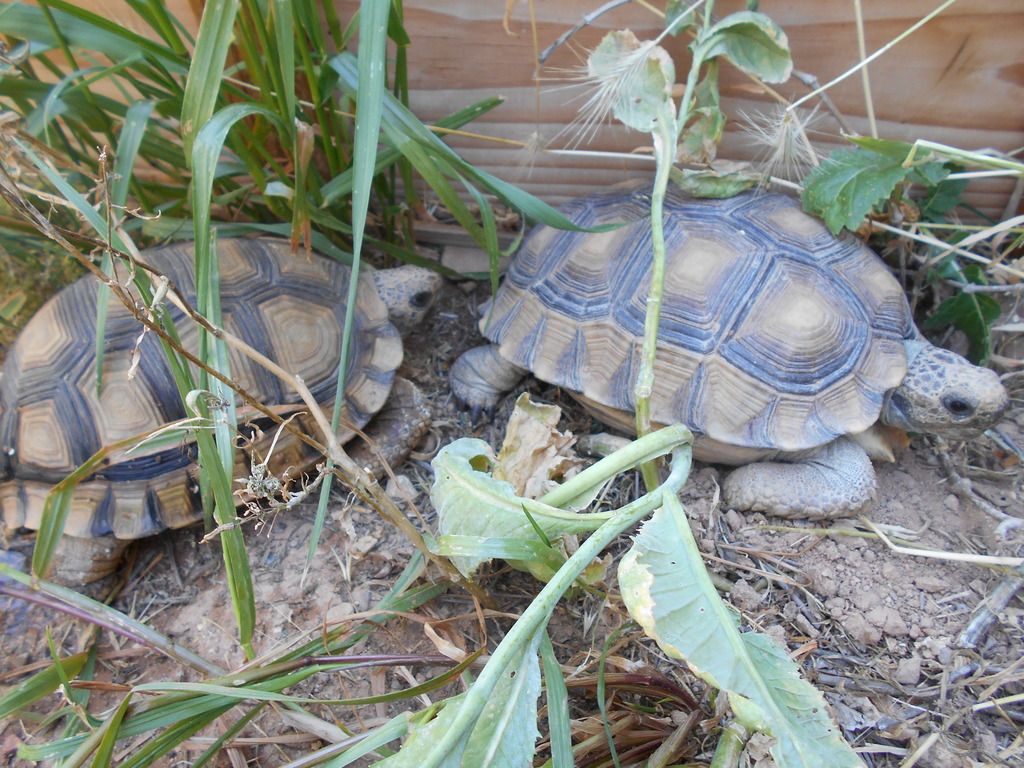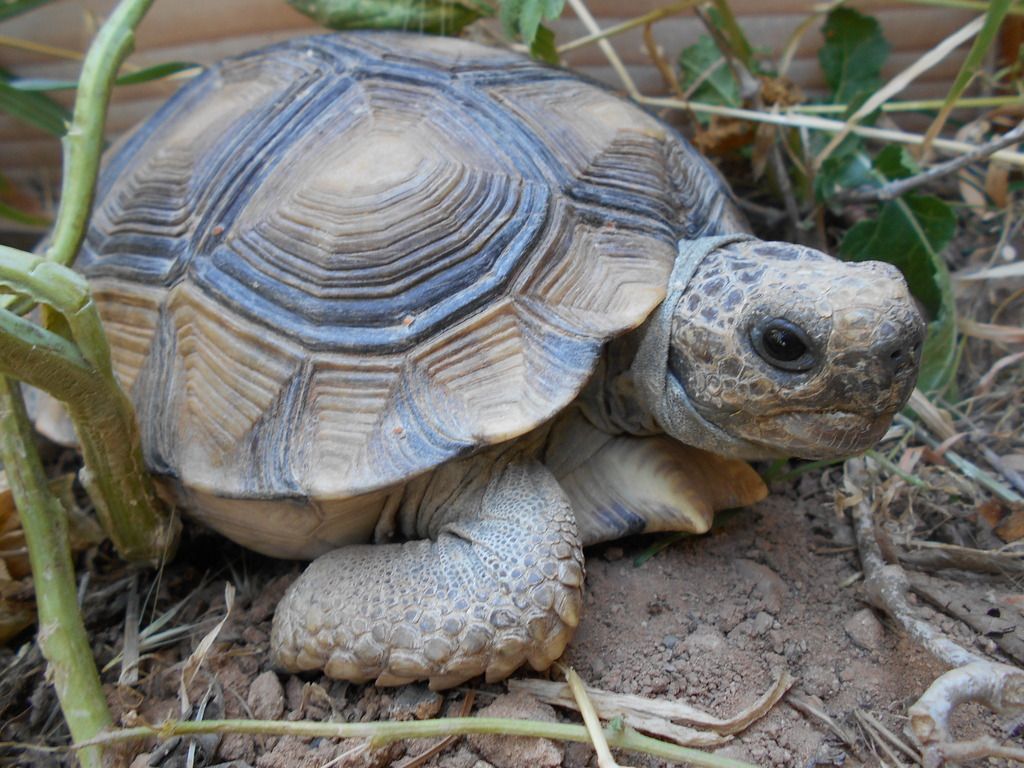Would love to hear about, and see some pics of your spiders! Thanks for starting this thread, it's been very informative.
You are using an out of date browser. It may not display this or other websites correctly.
You should upgrade or use an alternative browser.
You should upgrade or use an alternative browser.
How we breed tortoises here at the AZ Tortoise Compound
- Thread starter Az tortoise compound
- Start date
- Joined
- Apr 3, 2013
- Messages
- 10,877
Andy don't only sell torts but he and his wife love them also !Would love to hear about, and see some pics of your spiders! Thanks for starting this thread, it's been very informative.
- Joined
- Aug 30, 2015
- Messages
- 253
Thanks for clearing that up

To reply to awesomecs post - "um isint that overcrowded dude but nice stock might buy from you when I'm 16"
Overcrowding can be a huge health risk for tortoises. All tortoises are feces eaters and that is the number one way for them to get each other sick besides basic contact. An over crowed enclosure can also lead to the tortoises water dish getting built up with too much feces and passing along sicknesses. At Arizona Tortoise Compound we maintain a huge variety of tortoise species but most of our groups are manageable numbers. Once some of our tortoises species get setup nicely in a herd or colony setting, we will close that group. Meaning we will not introduce more tortoises into that enclosure, we will start a second enclosure and create a second herd if we need to increase our total number of breeders. Our space limitation is what determines the size of our groups. All species and sub species are housed separately and prevention of cross contamination is always in the fore front of our minds. Even when we purchasing tortoises, from adults to hatchlings, we have to keep them separated from other groups until we are for sure the tortoises are not carrying an hidden pathogens or bacteria's. Most fecal testing is done in house but we do have a close working relationship with a great local veterinarian. Also many of our customers are vet techs, veterinarians, zoos and other organizations that do their own testing once they receive tortoises from us and provide feed back. A lot of the first time tortoise buyers are now taking there tortoises in for a vet once they receive their new tortoise. While tortoises are long lived we always recommend annual vet check ups for your tortoises. Annual preventative care is also done here as well, from fecal testing to de-worming. With most all of our tortoises living outdoors, they go through seasonal and temperature changes. This can play a role on their health depending. We try to be pro-active and think about their needs before they need it. Its always a learning experience and that's what makes tortoise keeping so awesome.
We will touch on the Hermann's Tortoise next and the three sub-species we maintain...
Like! ! ! ! ! !
Bre Hopkins
New Member
- Joined
- Apr 25, 2017
- Messages
- 3
I have a question since I live in az too my female about 22 inches and my male about 16 inches tend to break into each other pens and mate , I didn't think he was mature enough to actually get the job done since he will mount any part of her , but yesterday she laid eggs , I was shocked and so excited at the same time but I have never done the egg thing and really only found out like 8 months ago he was a male so I separated them , my question is , is it safe to just leave the eggs in the ground with a little fence around them ? And if so is there anything I need to do as far as watering the nest site I read you will hose yours down how often do you do that? I don't have the heart to destroy them I have babies I purchased online so I know how to raise torts just not from the beginning , please don't be mean like I said I separated them but they are tanks and break into each others pens , I appreciate any advise
- Joined
- Apr 3, 2013
- Messages
- 10,877
Well Bre
I live in Phx , AZ ! I don't have your tanks but I leave some of my Leopards eggs out side and my Russians , Greeks , and Herrmans and Box turtles . And I water their enclosures everyday . But you must watch for ants cause they will eat all the eggs if they find a nest !
I live in Phx , AZ ! I don't have your tanks but I leave some of my Leopards eggs out side and my Russians , Greeks , and Herrmans and Box turtles . And I water their enclosures everyday . But you must watch for ants cause they will eat all the eggs if they find a nest !
Bre Hopkins
New Member
- Joined
- Apr 25, 2017
- Messages
- 3
Thanks so much for the response, I live in congress so its a little bit cooler then phoenix and am a little worried about cooler nights too
- Joined
- Apr 3, 2013
- Messages
- 10,877
I can't remember if it was @Tom or @ Will that was talking about tort eggs cool and warm hatching eggs ! But you'll have to talk to them . Sorry that I can't help more .Thanks so much for the response, I live in congress so its a little bit cooler then phoenix and am a little worried about cooler nights too
Just got caught back up with this fantastic thread. If there is a way for you to take a big pic of the whole compound, I would love to see it, as I'm sure others would too.
- Joined
- Mar 23, 2010
- Messages
- 196
Hi Thanks for this thread. My 20 year olds Star tortoise has been laying eggs since 2008 but I never have any success with her. The male is rather smaller in size and I am not sure if they mated properly.
Anyway I am from South East Asia and our Temperature is generally between 81F to 89F the whole year and humidity level is high like 90%.
Can you advise on the vermiculite and water ratio? I saw some people propose a 1:1 ratio. Do you think it will be too wet for me? Also do we need to mist the incubation and what is the frequency of misting? I read that we shouldnt get the eggs wet during incubation. I am using a small incubator brinsea octagon 10. I think could only house like 5 eggs.
My Tortoise just laid an egg on 14 May 2017.
Anyway I am from South East Asia and our Temperature is generally between 81F to 89F the whole year and humidity level is high like 90%.
Can you advise on the vermiculite and water ratio? I saw some people propose a 1:1 ratio. Do you think it will be too wet for me? Also do we need to mist the incubation and what is the frequency of misting? I read that we shouldnt get the eggs wet during incubation. I am using a small incubator brinsea octagon 10. I think could only house like 5 eggs.
My Tortoise just laid an egg on 14 May 2017.
Similar threads
- Locked
- Replies
- 8
- Views
- 4K
New Posts
-
Giant tortoises living outside in Scotland??
- Latest: The_Four_Toed_Edward
-
-